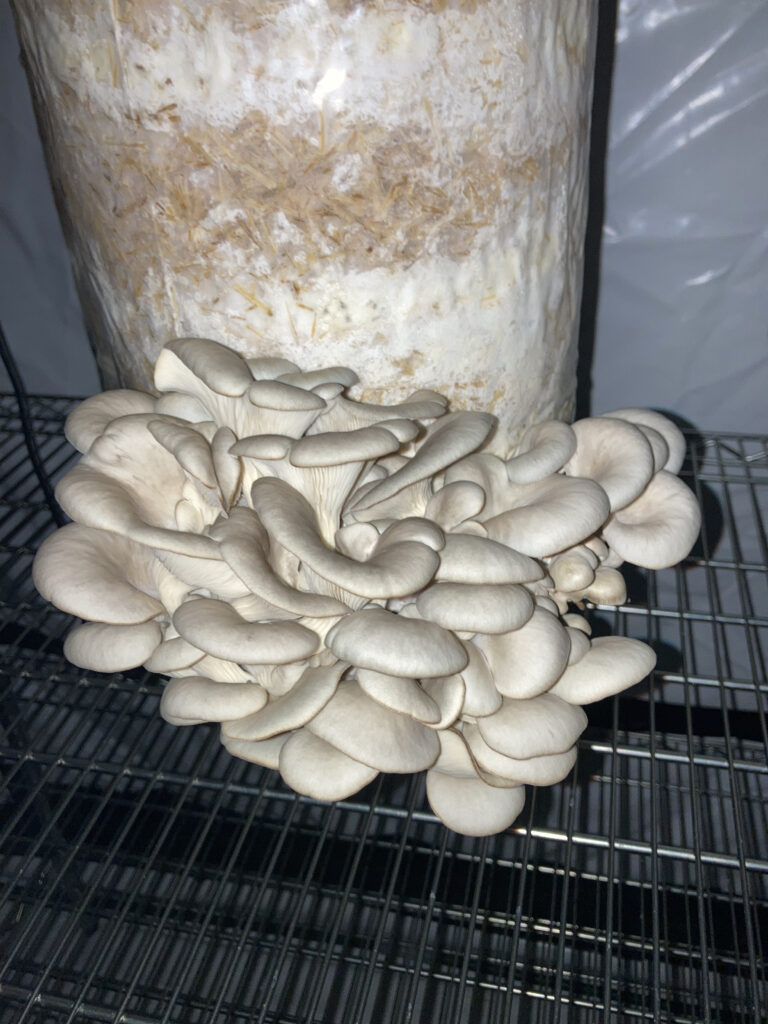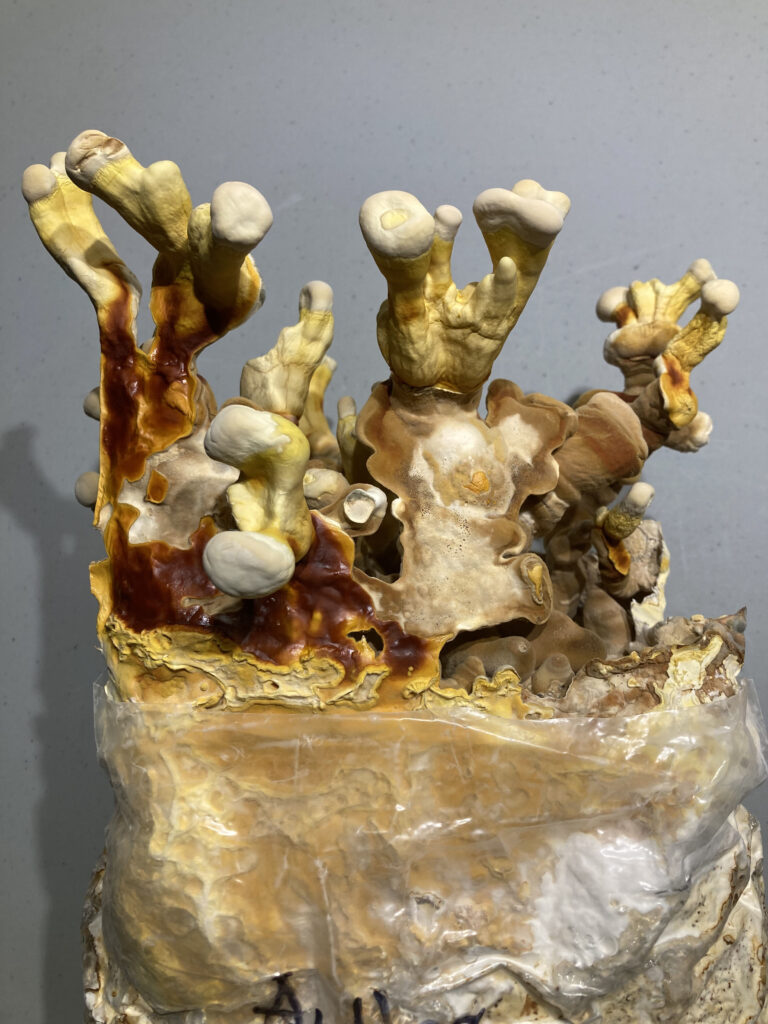OYSTERS
Oyster mushrooms are a gilled mushroom of the Pleurotus genus and have over two hundred varieties within the species itself. They are typically the most common gourmet mushroom you can find at grocery stores and farmer’s markets and are one of the most widely cultivated mushrooms in the world. They prefer temperate to tropical climates and can be found growing on dead or decaying trees all across the world. The most common varieties are Blue, King Trumpet, Pink, Gold, Grey and Italian. Aside from the King Trumpet, most oysters are shaped like oysters and can grow up to 9 inches in length. King Trumpet and Blue Oysters are a chef’s favorite, so they will be the most common mushroom you will find in restaurants. Oyster mushrooms are low in calories and high in vitamins, minerals and amino acids. Scientists have discovered that these mushrooms are higher in antioxidants than other cultivated mushrooms and can likewise help lower cholesterol. Studies also show a probable improvement in cognitive health, aid in controlling blood sugar levels and may lower the risk of cancer.
LION'S MANE
Hericium erinaceus, or the Lion’s Mane mushroom, is also referred to as the Hedgehog, Pom Pom, Monkey’s Head, Bear’s Head, Sheep’s Head and Old Man’s Beard mushroom. This large white toothed fungus is composed of downward cascading spines with a fruit body up to sixteen inches in diameter that is said to resemble a lion’s mane in appearance. As they age, these fungi start browning or yellowing and should be harvested before this occurs. Some species have a pinkish hue. They can be found growing on decaying or dead hardwoods like maple, oak, alder, beech, walnut and sycamore trees in North America, Europe and Asia.
Lion’s Mane is highly sought after due to its remarkable medicinal qualities for the brain, heart and gut. It’s said to extend the lives of people with cancer and is likewise effective in treating tumors, causing cancer cells to die faster. Ingesting this mushroom has been proven to stimulate nerve growth and promote brain cell growth, speeding up injuries to the brain and spinal cord, thereby repairing neurological traumas and improving cognitive function and muscle/motor response pathways. It’s said to protect against dementia and Alzheimer’s Disease and reduce memory loss. Lion’s Mane can help relieve mild symptoms of depression and anxiety. Studies show that it also repairs and protects against ulcers and protects the stomach lining and certain tissues in the gut and digestive tract. Lion’s Mane extract can help manage symptoms of diabetes and reduce chronic inflammation from autoimmune diseases, cancer and heart disease and is a good source of antioxidants.
Not only is the Lion’s Mane highly regarded for its medicinal qualities, but is also considered one of the tastiest gourmet mushrooms. After cooked, it imparts a rich lobster-like flavor profile and to some, even eggplant. These qualities make the Lion’s Mane mushroom one of the most popular in the world of gourmet fungus.
REISHI
Reishi mushrooms of the Ganoderma genus are native to Asia and North America. Their medicinal uses are widespread and highly regarded. They have been used in traditional medicine for over 2,000 years and are the most common medicinal mushroom in the world. They can be found growing on stumps and at the base of trees up to a foot or more in width and a couple inches in thickness. This mushroom is shiny and colorful in appearance and can be fan-shaped or antler-like. Due to the lower amount of water content in this mushroom, it can be tough and cardboard-like in texture. Because of this, Reishi mushrooms are dried and powderized and put into capsules, extracts and teas.



